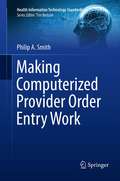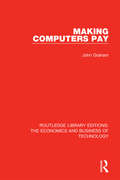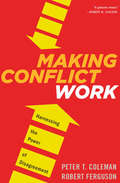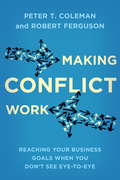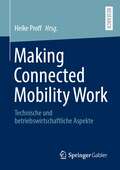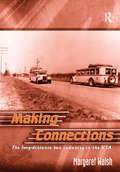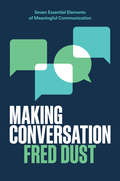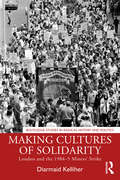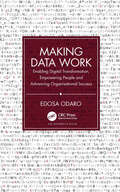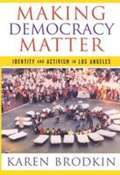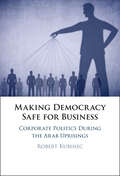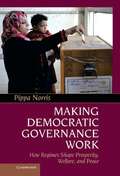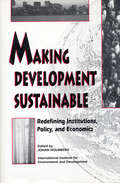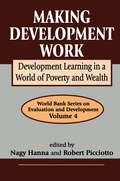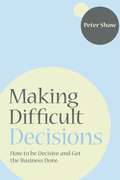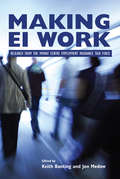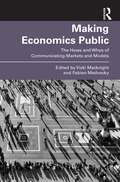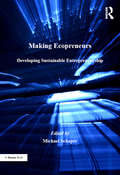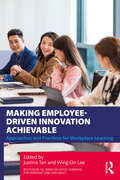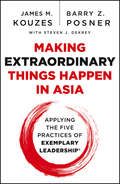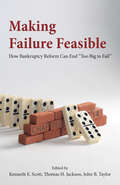- Table View
- List View
Making Computerized Provider Order Entry Work
by Philip SmithDespite all the jokes about the poor quality of physician handwriting, physician adoption of computerized provider order entry (CPOE) in hospitals still lags behind other industries' use of technology. As of the end of 2010, less than 22% of hospitals had deployed CPOE. Yet experts claim that this technology reduces over 80% of medication errors and could prevent an estimated 522,000 serious medication errors annually in the US. Even though the federal government has offered $20 billion dollars in incentives to hospitals and health systems through the 2009 stimulus (the ARRA HITECH section of the American Recovery and Reinvestment Act of 2009), many organizations are struggling to implement advanced clinical information systems including CPOE. In addition, industry experts estimate that the healthcare industry is lacking as many as 40,000 persons with expertise in clinical informatics necessary to make it all happen by the 2016 deadline for these incentives. While the scientific literature contains numerous studies and stories about CPOE, no one has written a comprehensive, practical guide like Making CPOE Work. While early adopters of CPOE were mainly academic hospitals, community hospitals are now proceeding with CPOE projects and need a comprehensive guide. Making CPOE Work is a book that will provide a concise guide to help both new and experienced health informatics teams successfully plan and implement CPOE. The book, in a narrative style, draws on the author's decade-long experiences of implementing CPOE at a variety of academic, pediatric and community hospitals across the United States.
Making Computers Pay (Routledge Library Editions: The Economics and Business of Technology #16)
by John GrahamOriginally published in 1976, this book discusses the management skills needed to evaluate, implement and control computer-based operation. Every chapter contains detailed check lists which guide the reader to formulate policies to deal with real situations. It provides a practical look at an indispensable tool of management, with a set of guidelines to help get the most out of the available technology.
Making Conflict Work: Harnessing the Power of Disagreement
by Peter T. Coleman Robert FergusonA provocative guide to navigating conflict in the workplace by assessing power dynamics and adapting your tactics accordingly.
Making Conflict Work: Reaching your business goals when you don't see eye-to-eye
by Peter T. Coleman Robert Ferguson'Coleman and Ferguson have done something remarkable: they've written an evidence-based book on the complex topic of conflict and made it easy to read, easy to understand, and, best of all, easy to use. A genuine winner' Robert B. Cialdini, author of Influence: The Psychology of PersuasionA PRACTICAL GUIDE TO NAVIGATING WORKPLACE CONFLICTS Work conflict is risky. It can go bad and poison employee health, work relationships and organizational climates, or it can go well and help to energize problem solving, innovation and bottom-line effectiveness. Managing conflicts up and down the chain of command at work can be particularly treacherous, as power differences complicate conflicts and constrain response options. Organizations are rife with stories of executives and managers who abuse their power, employees who overstep their authority, and the resulting conflicts that get stuck in downward spirals. When people find themselves in conflict, they immediately become aware of the balance of power in the situation or relationship: 'Hey, you work for me, so back off!', or 'Wow, he is much bigger and drunker than I thought he was before I told him to shut up', so understanding how conflict and power affect each other is vital to effective conflict management.In Making Conflict Work, Peter Coleman and Robert Ferguson, leading experts in the field of conflict resolution, address the key role of power in workplace tension. Coleman and Ferguson explain how power dynamics function and provide step-by-step guidance to determining your standing in a conflict and identifying and applying the strategies that will lead to the best resolution. Drawing on the authors' years of research and consulting experience, Making Conflict Work offers seven new strategies and dozens of tactics for negotiating disputes at all levels of an organization. This powerful approach can turn workplace tensions into catalysts for creativity, innovation, and meaningful change.
Making Connected Mobility Work: Technische und betriebswirtschaftliche Aspekte
by Heike ProffDer Sammelband zum 12. Wissenschaftsforum Mobilität der Universität Duisburg-Essen untersucht das Rahmenthema „Making Connected Mobility Work“. Die Beiträge an den Schnittstellen der betriebswirtschaftlichen und ingenieurwissenschaftlichen Forschung geben dazu einen umfassenden Einblick und zeigen Möglichkeiten auf, wie Unternehmen sich auf die fortschreitende Vernetzung in der Mobilität einstellen können.
Making Connections: The Long-Distance Bus Industry in the USA (The\dynamics Of Economic Space Ser.)
by Margaret WalshAn examination of the varied paths of the American inter-city bus industry from its origins in the second decade of the 20th century to deregulation in 1982. This sector of transport has been much neglected by historians and this book seeks to uncover a range of useful and pertinent information to those who are interested in understanding entrepreneurial endeavours, patterns of mobility and consumer attitudes. It analyzes the development of the national industry, probes the growth of particular companies and investigates specific aspects of business behaviour. The work is presented as a series of focused essays which offer insights into such topics as regulation, marketing, gender patterns and intermodal competition. It draws on diverse archival materials, government surveys and findings, trade publications, interviews and photographs. A wide-ranging bibliographical essay offers a guide to available sources.
Making Conversation: Seven Essential Elements of Meaningful Communication
by Fred DustA former Senior Partner and Global Managing Director at the legendary design firm IDEO shows how to design conversations and meetings that are creative and impactful. Conversations are one of the most fundamental means of communicating we have as humans. At their best, conversations are unconstrained, authentic and open—two or more people sharing thoughts and ideas in a way that bridges our individual experiences, achieves a common goal. At their worst, they foster misunderstanding, frustration and obscure our real intentions.How often do you walk away from a conversation feeling really heard? That it moved the people in it forward in some important way? You’re not alone. In his practice as a designer, Fred Dust began to approach conversations differently. After years of trying to broker communication between colleagues and clients, he came to believe there had to a way to design the art of conversation itself with intention and purpose, but still artful and playful. Making Conversation codifies what he learned and outlines the seven elements essential to successful exchanges: Commitment, Creative Listening, Clarity, Context, Constraints, Change, and Create. Taken together, these seven elements form a set of resources anyone can use to be more deliberate and purposeful in making conversations work.
Making Cultural Cities in Asia: Mobility, assemblage, and the politics of aspirational urbanism (Regions and Cities)
by Yang Yang June Wang Tim OakesThis book examines the vast and largely uncharted world of cultural/creative city-making in Asia. It explores the establishment of policy models and practices against the backdrop of a globalizing world, and considers the dynamic relationship between powerful actors and resources that impact Asian cities. Making Cultural Cities in Asia approaches this dynamic process through the lens of assemblage: how the policy models of cultural/creative cities have been extracted from the flow of ideas, and how re-invented versions have been assembled, territorialized, and exported. This approach reveals a spectrum between globally circulating ideals on the one hand, and the place-based contexts and contingencies on the other. At one end of the spectrum, this book features chapters on policy mobility, in particular the political construction of the "web" of communication and the restructuring or rescaling of the state. At the other end, chapters examine the increasingly fragmented social forces, their changing roles in the process, and their negotiations, alignments, and resistances. This book will be of interest to researchers and policy-makers concerned with cultural and urban studies, creative industries and Asian studies.
Making Cultures of Solidarity: London and the 1984–5 Miners’ Strike (Routledge Studies in Radical History and Politics)
by Diarmaid KelliherThis book combines radical history, critical geography, and political theory in an innovative history of the solidarity campaign in London during the 1984-5 miners’ strike. Thousands of people collected food and money, joined picket lines and demonstrations, organised meetings, travelled to mining areas, and hosted coalfield activists in their homes during the strike. The support campaign encompassed longstanding elements of the British labour movement as well as autonomously organised Black, lesbian and gay, and feminist support groups. This book shows how the solidarity of 1984-5 was rooted in the development of mutual relationships of support between the coalfields and the capital since the late 1960s. It argues that a culture of solidarity was developed through industrial and political struggles that brought together diverse activists from mining communities and London. The book also takes the story forward, exploring the aftermath of the miners’ strike and the complex legacies of the support movement up to the present day. This rich history provides a compelling example of how solidarity can cross geographical and social boundaries. This book is essential reading for students, scholars, and activists with an interest in left-wing politics and history.
Making Data Work: Enabling Digital Transformation, Empowering People and Advancing Organisational Success
by Edosa OdaroIf you care about AI transformation, empowering people or advancing organisational success in an increasingly digital world, then you should read this book.—Yomi Ibosiola, Chief Data and Analytics Officer, Union Bank A retail giant already struggling due to the Covid-19 pandemic was faced with a disastrous situation when—at the end of a critical investment in an artificial intelligence project that had been meant to save money—it suddenly discovered that its implementation was likely to leave it worse off. An entire critical service stream within an insurer’s production system crashed. This critical failure resulted in the detentions of fully insured motorists for allegedly not carrying required insurance. Making Data Work: Enabling Digital Transformation, Empowering People and Advancing Organisational Success details these two scenarios as well as others illustrating the consequences that arise when organizations do not know how to make data work properly. It is a journey to determine what to do to "make data work" for ourselves and for our organisations. It is a journey to discover how to bring it all together so organisations can enable digital transformation, empower people, and advance organisational success. It is the journey to a world where data and technology finally live up to the hype and deliver better human outcomes, where artificial intelligence can move us from reacting to situations to predicting future occurrences and enabling desirable possibilities.
Making Democracy Matter: Identity and Activism in Los Angeles
by Karen BrodkinWhat makes a social movement a movement? Where do the contagious energy, vision, and sense of infinite possibility come from? Students of progressive social movements know a good deal about what works and what doesn't and about the constituencies that are conducive to political activism, but what are the personal and emotional dynamics that turn ordinary people into activists? And, what are the visions and practices of democracy that foster such transformations? This book seeks to answer these questions ...
Making Democracy Safe for Business: Corporate Politics During the Arab Uprisings
by Robert KubinecBusinesses in the Middle East and North Africa have failed to bring sustainable development despite decades of investment from the private and public sectors. Yet we still know little about why the Arab Uprisings failed to usher in more transparent government that could break this enduring cycle of corruption and mismanagement. Examining posttransition politics in Egypt and Tunisia, Kubinec employs interviews and quantitative surveys to map out the corrupting influence of businesses on politics. He argues that businesses must respond to changes in how perks and privileges are distributed after political transitions, either by forming political coalitions or creating new informal connections to emerging politicians. Employing detailed case studies and original experiments, Making Democracy Safe for Business advances our empirical understanding of the study of the durability of corruption in general and the dismal results of the Arab Uprisings in particular.
Making Democratic Governance Work
by Pippa NorrisThis book focuses on three core questions. Is democratic governance good for economic prosperity? Has this type of regime accelerated progress toward achieving the Millennium Development Goals, social welfare, and human development? Does it generate a peace-dividend and reduce conflict at home? Despite the importance of understanding these questions and the vast research literature generated, remarkably little consensus has emerged about any of these issues. Within the international community, democracy and governance are widely advocated as intrinsically desirable and important goals. Nevertheless, alternative schools of thought continue to dispute their consequences - and thus the most effective strategy for achieving a range of critical developmental objectives. Some believe that human development is largely determined by structural conditions in each society, such as geographic location, natural resources, and the reservoir of human capital, so that regimes have minimal impact. Others advocate promoting democracy to insure that leaders are responsive to social needs and accountable to citizens for achieving better schools, clinics, and wages. Yet others counter that governance capacity is essential for delivering basic public services, and state-building is essential in post-conflict reconstruction prior to holding elections. This book advances the argument that both liberal democracy and state capacity need to be strengthened in parallel to ensure effective development, within the constraints posed by structural conditions. Liberal democracy allows citizens to express their demands, to hold public officials to account, and to rid themselves of incompetent, corrupt, or ineffective leaders. Yet rising public demands that cannot be met by the state are a recipe for frustration, generating disillusionment with incumbent officeholders, or, if discontent spreads to becomes more diffuse, with the way that the regime works, or even ultimately with the promise of liberal democracy ideals. Thus governance capacity is also predicted to play a vital role in advancing human security, so that states have the capacity to respond effectively to citizen's demands. The argument is demonstrated using systematic evidence gathered from countries worldwide during recent decades and selected cases illustrating the effects of regime change on development.
Making Development Sustainable: Redefining Institutions Policy And Economics
by Johan HolmbergMaking Development Sustainable is an integrated series of essays on the policies for sustainable development from one of the leading policy research institutes for environmental and development issues.
Making Development Work: Development Learning in a World of Poverty and Wealth
by Robert PicciottoWorldwide, the number of poor people increased during the past decade, despite technological improvements, more open trade, and improved policy frameworks in developing countries. Regional conflicts, adverse shifts in terms of trade, and marginalization of poor countries in the new global economy explain this outcome. This highlights the need to reform development assistance and improve its effectiveness. Making Development Work examines the four key principles of the Comprehensive-Development Framework, a World Bank initiative currently being piloted in twelve developing counties. The initiative promotes a holistic long-term vision of development, domestic ownership of development programs, and focus on results; and stronger partnership between government, the private sector, and the civil society. The first section of the volume describes the evolution in development thinking that culminated in this new consensus. The second focuses on country ownership of development policies and programs. Based on empirical evidence, it proposes a new view of the aid relationship as a mutual-learning process. The third section focuses on results and on the ways aid agencies might enhance development impact of their operations. It concludes with a preliminary assessment of strategies for scaling up from specific projects to sector and programmatic approaches, and suggests ways to adapt them to counter conditions. The experience of a bilateral aid agency, U.S. Agency for International Development (USAID), is examined in this context. The fourth section focuses on partnership, emphasizing that aid agencies must be explicit about the kinds of partnerships they seek with countries and the kinds of strategic selectivity they will exercise. The final chapter pulls together the lessons of development experience at various levels of operation. It outlines key tensions between comprehensiveness and selectivity, ownership and conditionality, speed and broad-based ownership, focus on results and poor local evaluation capacity, and enhanced country focus and globalization. Promising approaches to manage these tensions are put forward to replace one-size-fits-all prescriptions with client empowerment and social learning. Making Development Work offers rich lessons on improving the effectiveness of aid. It will be of particular interest to development practitioners, students and professors of development economics studies. Nagy Hanna is a lead corporate strategist and evaluation officer at the World Bank. He has published extensively on development, management, and knowledge. Robert Picciotto is director-general of Operations Evaluation at the World Bank.
Making Differences Matter: A New Paradigm for Managing Diversity
by Robin J. Ely David A. ThomasDiversity efforts in the workplace have been undertaken with great goodwill, but, ironically, they often end up fueling tensions. They rarely spur the leaps in organizational effectiveness that are possible. Two paradigms for diversity are responsible, but a new third paradigm is showing it can address the problem. Leaders in third-paradigm companies are proactive about learning from diversity; they encourage people to make explicit use of cultural experience at work; they fight all forms of dominance and subordination, including those generated by one functional group acting superior to another; and they ensure that the inevitable tensions that come from a genuine effort to make way for diversity are acknowledged and resolved with sensitivity.
Making Difficult Decisions: How to be decisive and get the business done
by Peter J. ShawYou are faced with so many difficult decisions. Often your decision making seems random. It can be swayed by different situations and emotions. You need to be more rigorous in the way you make decisions and yet you have very little time to do so. Experience from others who have made tough decisions and a framework to help you do so would be invaluable. The courage to make decisions is sometimes a bit elusive. It is difficult to find the calmness to be able to make and live with those decisions. There is so much that can be learned from the experience of others. After working through this book you will have the courage of your convictions and the ability to make difficult decisions count. The book sets out a framework for making difficult decisions that has been tried and tested. It has been used successfully in one-to-one coaching with senior leaders in both the public, private and voluntary sectors. The framework is built on the following strands: Clarity; Conviction; Courage; and Communication.
Making EI Work: Research from the Mowat Centre Employment Insurance Task Force (Queen's Policy Studies Series)
by Jon Medow Keith BantingSince the inception and design of Canada's Employment Insurance (EI) program, the Canadian economy and labour market have undergone dramatic changes. It is clear that EI has not kept pace with those changes, and experts and advocates agree that the program is no longer effective or equitable. Making EI Work is the result of a panel of distinguished scholars gathered by the Mowat Centre Employment Insurance Task Force to analyze the strengths, weaknesses, and future directions of EI. The authors identify the strengths and weaknesses of the system, and consider how it could be improved to better and more fairly support those in need. They make suggestions for facilitating a more efficient Canadian labour market, and meeting the human capital requirements of a dynamic economy for the present and the foreseeable future. The chapters that comprise Making EI Work informed the task force's final recommendations, and form an engaging dialogue that makes the case for, and defines the parameters of, a reformed support system for Canada's unemployed. Contributors include Ken Battle (Caledon Institute of Social Policy), Robin Boadway (Queen's University), Allison Bramwell (University of Toronto), Sujit Choudhry (New York University School of Law), Kathleen M. Day (University of Ottawa), Ross Finnie (University of Ottawa), Jean-Denis Garon (Queen's University), David Gray (University of Ottawa), Morley Gunderson (University of Toronto), Ian Irvine (Concordia University), Stephen Jones (McMaster University), Thomas R. Klassen (York University), Michael Mendelson (Caledon Institute of Social Policy), Alain Noël (Université de Montréal), Michael Pal (University of Toronto Faculty of Law), W. Craig Riddell (University of British Columbia), William Scarth (McMaster University), Luc Turgeon (University of Ottawa), Leah F. Vosko (York University), Stanley L. Winer (Carleton University), Donna E. Wood (University of Victoria), and Yan Zhang (Statistics Canada).
Making Economics Public: The Hows and Whys of Communicating Markets and Models
by Fabien Medvecky Vicki MacknightEconomics – macro, micro and mysterious – is integral to everyday life. But despite its importance for personal and collective decision making, it is a discipline often viewed as technical, arcane and inaccessible and thus overlooked in public discourse. This book is a call to arms to bring the discipline of economics more into the public domain. It calls on economists to think about how to make their knowledge of the economics public. And it calls on those who specialise in communicating expert knowledge to help us learn to communicate about economics. The book brings together scholars and practitioners working at the early stages of an emerging field: the public communication of, and public engagement with, economics. Through a series of short essays from academics and practitioners, the book has two key goals: first and foremost, it will make a case for why we need to make economics public and for the importance of having a clear vision of what it means to make economics public. Secondly, it suggests some ways that this can be done featuring contributions from practitioners, including economists, who are engaging audiences in newspapers, museums and beyond. This book is essential reading for those in economics with an interest in making economics public and those already in the many fields dedicated to communicating expert knowledge in public spaces who have an interest in where economics can fit.
Making Ecopreneurs: Developing Sustainable Entrepreneurship (Corporate Social Responsibility)
by Michael SchaperThe first edition of this book looked at the emergence of 'ecopreneurs' - environmental entrepreneurs gaining competitive advantage for their firms through understanding and utilising green issues. These green entrepreneurs have led the way in enabling market forces to generate economic growth whilst protecting the environment and encouraging sustainability. This new edition continues the examination of what distinguishes these green entrepreneurs from others. It draws on a diverse range of case studies embracing examples of both successful and unsuccessful ecopreneurial ventures on at least four continents. Contributions have been updated and a number of entirely new chapters describe sustainable business projects in places ranging from the USA , India, western Europe, UK, Australia, central America and New Zealand. Making Ecopreneurs, second edition, charts recent developments and remains highly relevant to researchers in the fields of sustainable business development and entrepreneurship, to policymakers within governments and NGOs, and to those running businesses.
Making Electricity Resilient: Risk and Security in a Liberalized Infrastructure (Routledge Studies in Energy Policy)
by Antti SilvastEnergy risk and security have become topical matters in Western and international policy discussions; ranging from international climate change mitigation to investment in energy infrastructures to support economic growth and more sustainable energy provisions. As such, ensuring the resilience of more sustainable energy infrastructures against disruptions has become a growing concern for high-level policy makers. Drawing on interviews, participant observation, policy analysis, and survey research, this book unpacks the work of the authorities, electricity companies, and lay persons that keeps energy systems from failing and helps them to recover from disruptions if they occur. The book explores a number of important issues: the historical security policy of energy infrastructures; control rooms where electricity is traded and maintained in real time; and electricity consumers in their homes. Presenting case studies from Finland and Scandinavia, with comparisons to the United States, the United Kingdom, and the European Union at large, Making Electricity Resilient offers a detailed and innovative analysis of long-term priorities and short-term dynamics in energy risk and resilience. This book will be of great interest to students and scholars of energy policy and security, and science and technology studies.
Making Employee-Driven Innovation Achievable: Approaches and Practices for Workplace Learning (Routledge-IAL Series on Adult Learning for Emergent Jobs and Skills)
by Wing On Lee Justina TanThis volume guides workplace trainers in teaching the significance of Employee-Driven Innovation (EDI) and recognising that each and every employee is capable of being the driver of innovation. Given that innovation has become imperative to unlock competitive advantage, and that employees are increasingly regarded as a quintessential aspect of innovation, this focus on EDI and how to enable it is both necessary and opportune. The book is split into three parts: first focusing on helping trainers to address the challenges of getting employees to engage in innovative work besides their regular job tasks. How can organisations instil this mindset in their employees who see themselves as stalwarts of status quo? The book then turns to how organisations can engage employees in innovation, with an accompanying emphasis that the enactment of EDI may not follow a prescribed or planned flow. It then closes by offering real-world examples of the unfolding of EDI in both the Finnish and Singaporean contexts. The book is aimed at educating enterprises, both employers and workplace trainers, and adult educators in the practices and approaches to engage employees in innovation. It seeks to bridge, specifically the theory-practice nexus of EDI, and nudge the enterprises and TAE (training and adult education) practitioners that have yet to involve or engage employees systematically in innovation to seriously consider it.
Making Energy Markets: The Origins of Electricity Liberalisation in Europe
by Ronan BoltonMaking Energy Markets charts the emergence and early evolution of electricity markets in western Europe, covering the decade from the late 1980s to the late 1990s. Liberalising electricity marked a radical deviation from the established paradigm of state-controlled electricity systems which had become established across Europe after the Second World War. By studying early liberalisation processes in Britain and the Nordic region, and analysing the role of the EEC, the book shows that the creation of electricity markets involved political decisions about the feasibility and desirability of introducing competition into electricity supply industries. Competition introduced risks, so in designing the process politicians needed to evaluate who the likely winners and losers might be and the degree to which competition would impact key national industries reliant on cross-subsidies from the electricity sector, in particular coal mining, nuclear power and energy intensive production. The book discusses how an understanding of the origins of electricity markets and their political character can inform contemporary debates about renewables and low carbon energy transitions.
Making Extraordinary Things Happen in Asia: Applying The Five Practices of Exemplary Leadership
by James M. Kouzes Barry Z. PosnerAn in-depth look at how leaders in Asia apply the Five Practices of Exemplary Leadership in their organizations Kouzes and Posner's Five Practices of Exemplary Leadership is the most trusted and proven leadership paradigm in the business world. Making Extraordinary Things Happen in Asia focuses on the unique ways leaders in Asia have applied the Five Practices and documents their success with it. Using actual case studies and first-person experiences, the book examines the Five Practices framework, shows how the behaviors of individual leaders make a difference, and reveals what leadership in Asia looks like on a daily basis. Each of the Five Practices is supported with five or six case studies illustrating what the Practice looks like on a behavioral level. After examining the Five Practices, the book then reveals what actions would-be and current leaders in Asia can do to improve their leadership skills and effectiveness. Customizes the legendary Five Practices of Exemplary Leadership framework specifically for Asian leaders, and a companion to The Leadership Challenge Features real case studies that show the Practices in action on a daily basis From leadership gurus James Kouzes and Barry Posner, together with one of Asia's top leadership experts, Steve DeKrey For leaders and aspiring leaders of Asian organizations and business, Making Extraordinary Things Happen in Asia is an invaluable guide to long-term leadership success.
Making Failure Feasible: How Bankruptcy Reform Can End Too Big to Fail
by Kenneth E. Scott, Thomas H. Jackson, John B. Taylor, editorsIn 2012, building off work first published in 2010, the Resolution Project proposed that a new Chapter 14 be added to the Bankruptcy Code, exclusively designed to deal with the reorganization or liquidation of the nation's large financial institutions. In Making Failure Feasible, the contributors expand on their proposal to improve the prospect that our largest financial institutions—particularly with prebankruptcy planning—could be successfully reorganized or liquidated pursuant to the rule of law and, in doing so, both make resolution planning pursuant to Title I of Dodd-Frank more fruitful and make reliance on administrative proceedings pursuant to Title II of Dodd-Frank largely unnecessary. This book highlights the problems of dealing with large financial institutions in distress, and Chapter 14's responses to those twin issues. The contributors first outline the basic features of Chapter 14 and point to their continuation as well as additional features to ensure the quick resolution of large financial institutions that would not depend on government discretion and would mesh with emerging ideas about cross-border resolution. The remaining chapters provide the context for reform and show how Chapter 14, as envisioned in this book, would be a substantial advance on administrative-focused resolution procedures.
